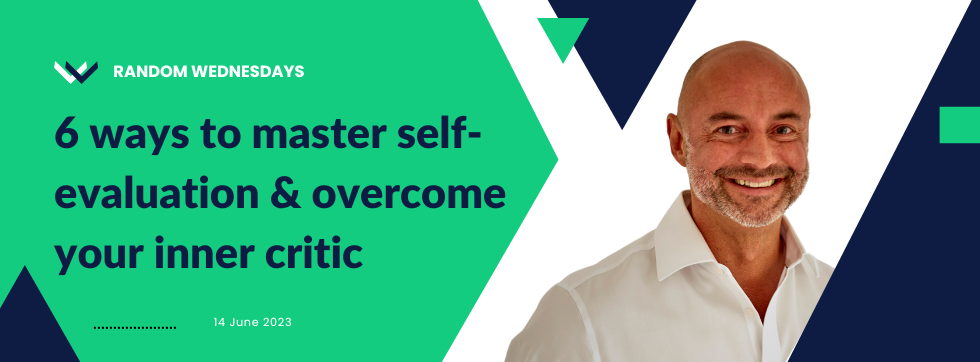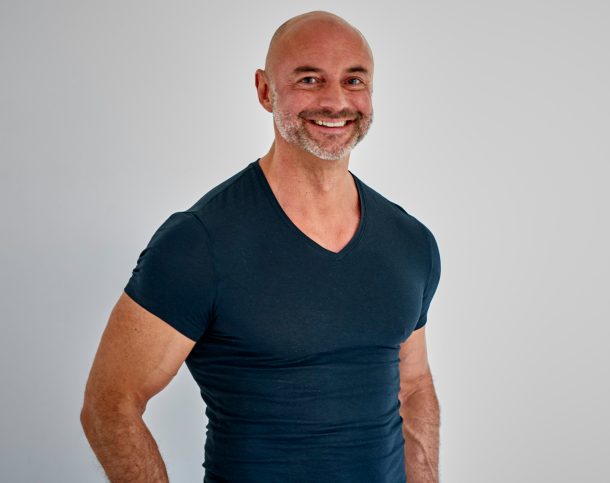“Hi Arnold, great memories of our success calls while certifying with IPEC. A topic that has kept me busy lately is the way we self-reflect after a session. How to balance inner critic with actual proof on improvement areas… I have the checklist on how to evaluate ourselves, still I wonder whether there are other ways to reflect, improve and build mastery” – Katelijne Berré
“No, no, no, Arnold. That’s not working for me!”
That feeling. Urgh!
Visceral. Stomach in knots.
Why?
The difficult session which didn’t go to plan.
We’ve all experienced them.
Those times when you’ve struggled to connect with an unresponsive client or felt disheartened with yourself.
Left unchecked such experiences can feed your inner critic but what if you could harness these challenges into catalysts for growth?
As coaches we’re not only guiding our clients through their journey, we’re also on the road ourselves.
At the heart of this process is self-evaluation and managing our inner critic.
Creating an effective self-evaluation process yields powerful insights into our strengths and areas for growth, whilst neglecting to manage our inner critic can sabotage our mental health and progress.
Here are 6 common frustrations I’ve experienced, which you may have too.
- Beating yourself up: Constantly questioning yourself, your ability, if you’re “good enough”
- Unmet goals: You replay the session, obsessing where and why things veered off track.
- Unresponsive client: You wonder how to reconnect and build rapport
- Lack of progress: You’re filled with self-doubt at the clients apparent lack of progress
- Difficulty handling emotions: You carry the emotional weight of the sessions, burnout looms
- Client resistance: You’re frustrated when a client resists your best coaching approaches.
Now imagine each frustration is an invitation to grow.
Transforming these frustrations requires a shift in perspective, not taking things personally and being objective.
Instead of focusing solely on the client, turn inward, focus on self-reflection, personal development, and getting better.
Let’s re-imagine how we tackle these challenges and turn setbacks into opportunities for growth.
1. Beating yourself up
Approach: Stop taking things personally, seek support from peers/mentor/coach
- Action Steps:
- Identify the key areas that didn’t meet expectations
- What exactly didn’t go as planned? What feelings did you experience?
- How could you handle the situation differently next time?
- Which skills could you improve, what new approaches can you try?
- Develop an action plan to develop these highlighted areas one at a time.
- External support: consider working with a mentor, peer or more experienced coach to get a different perspective.
2. Unmet Goals
Approach: Reflect on the session
- Action Steps:
- Talk with your client. Are their goals still relevant?
- Do they feel unmet? How are you defining and measuring them?
- Whose pace are you moving at? Yours or the clients?
- Where is your focus? Are you moving forward or going deeper?
- What hidden opportunities might be blocking energy and progress instead of focusing on outcomes?
- Are the goals clear and achievable?
- Who’s driving the bus? You or your client?
3. Unresponsive Client
Approach: Build trust and adapt communication style.
- Action Steps:
- Learn more about your client’s preferred communication style and adjust your approach accordingly to better resonate with them.
- Develop deeper trust with your client by showing empathy, validating their feelings, and reinforcing confidentiality.
- Seek feedback from the client about the coaching process, be open to making changes based on their input.
4. Lack of Progress
Approach: Use personalised strategies and foster a growth mindset.
- Action Steps:
- How well do you understand your client’s preferences, strengths, and potential barriers to progress?
- Consider using personality assessments like LuminaLearning
- Encourage the client to adopt a growth mindset, focusing on learning and progress rather than the end goals.
- Regularly review and revise the action plan as needed, ensuring it’s tailored to the client’s needs and circumstances – they may have changed.
5. Difficulty Handling Emotions
Approach: Practice self-care and develop emotional intelligence.
- Action Steps:
- Develop self-care routines, including regular breaks, physical exercise or hobbies which help you relax and decompress.
- Learn techniques for managing emotions, such as mindfulness, emotional regulation, and self-compassion practices.
6. Inability to break through client resistance
Approach: Understand the client’s perspective and manage resistance skillfully.
- Action Steps:
- Open up a dialogue about the resistance. Try to understand the root cause from the client’s perspective.
- Learn and apply techniques for managing resistance, such as motivational interviewing, acknowledging where the client is, exploring reasons for change, collaborating on small shifts
- Patience is key. Trust the process and the client’s ability to overcome their barriers when they’re ready.
Self-evaluation and the journey towards mastery cannot be achieved without the right mindset.
Here are 5 strategies to balance your inner critic while working on improvement areas:
1. Self-Compassion: When your inner critic voices harsh criticism, respond with kindness and understanding.
2. Re-frame the Narrative: Try to identify the patterns of your inner critic. What triggers it? What fears or insecurities does it tap into? By understanding these patterns, you can work on reframing the narrative towards one of growth and learning.
3. Mindfulness: Practice being in the present moment, acknowledging your thoughts and feelings without judgment. Mindfulness can help you observe your inner critic without becoming entangled in its narrative.
4. Create a success vault: Keep a record of your successes, client testimonials, or positive feedback you’ve received. Whenever your inner critic starts to dominate, remind yourself of these achievements. This concrete proof can be a powerful counterbalance to the often-exaggerated claims of the inner critic.
5. Practice reflective journaling: Regardless of whether you’ve knocked it out the park or your session’s gone pear shaped, create a consistent habit of writing down your thoughts, feelings, and reflections. Every coaching session provides opportunities for learning.
I hope these approaches can help you recognize patterns and soothe your inner critic whilst working on areas for improvement.
Want my checklist to help you self-evaluate?
Here are 10 areas and questions I reflect on after each session.
This process has helped me pinpoint where to direct my focus and energy to constantly improve.
1. Personal Growth: What did I learn from this session that I can use to improve as a coach in future sessions?
2. Emotional Intelligence: How aware of and how well did I respond to my clients emotions and feelings throughout the session?
3. Questioning Techniques: How open, probing and thought-provoking were my questions to facilitate deeper insight?
4. Active Listening: How fully did I engage in active listening, showing empathy and understanding without rushing to provide answers?
5. Goal Alignment: How did the session align with the client’s initial goals? What progress was made towards these goals?
6. Communication: How effectively did I communicate? How clear, concise, and constructive were my responses?
7. Challenge and Support: How balanced was I in challenging the client’s assumptions and beliefs, whilst supporting their journey towards their goals?
8. Action Steps: Were clear, actionable steps or strategies set at the end of the session for the client to follow?
9. Confidentiality and Trust: How did I create and maintain a safe and confidential space for the client? How was trust reinforced throughout the session?
10. Feedback Reception: Where did I seek and accept feedback from the client? How well did I handle constructive criticism?
Conclusion
Navigating the challenges of coaching demands a commitment to self-evaluation, growth and mastery.
By re-framing frustrations as opportunities, seeking feedback, investing in continual learning, and practicing self-compassion, we can quiet our inner critics and enhance our coaching potential.
Remember, it’s not about creating the perfect session – it’s about learning, adapting, and becoming better coaches, one session at a time.


